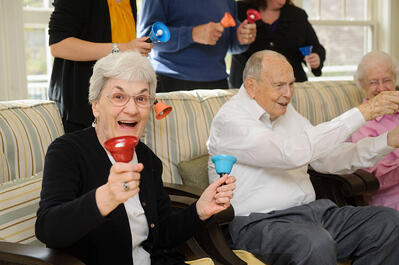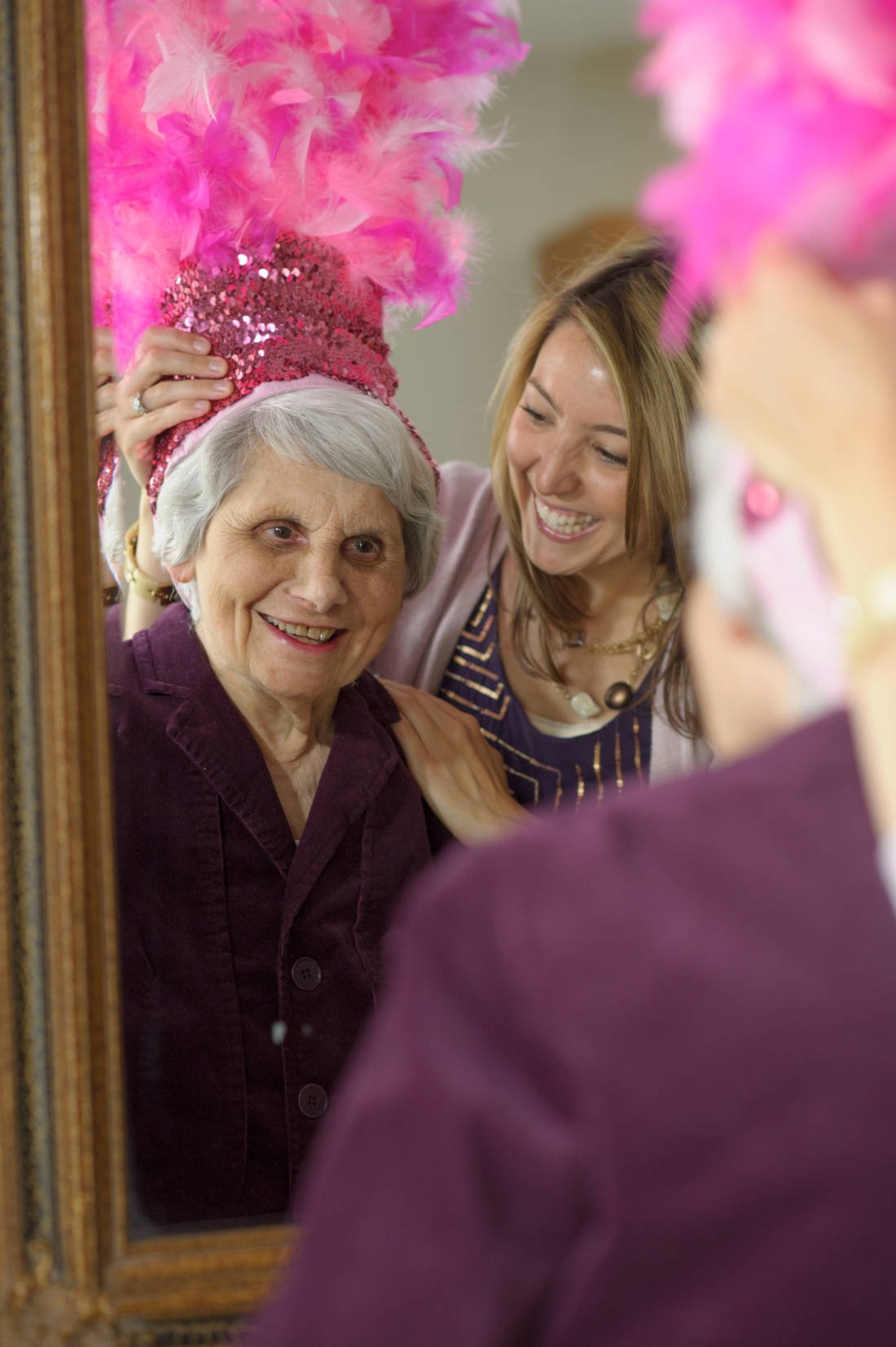The Benefits of Music for Seniors with Alzheimer's and Dementia
assisted living | caregiver tips | Aging & Caregiving
 The relaxing and restorative power of music is amazingly illustrated in the lives of seniors suffering from Alzheimer’s disease and dementia. Read on to learn about the many benefits of music, as well as ways to integrate music therapy into the life of your aging loved one.
The relaxing and restorative power of music is amazingly illustrated in the lives of seniors suffering from Alzheimer’s disease and dementia. Read on to learn about the many benefits of music, as well as ways to integrate music therapy into the life of your aging loved one.
The Healing Power of Music
A recent study conducted by researchers at the University of Miami School of Medicine revealed that music therapy leads to increased secretion levels of "feel-good" brain chemicals, including melatonin, serotonin, norepinephrine, epinephrine, and prolactin in Alzheimer’s patients.
The results are manifold: music can boost mood, reduce stress and agitation, foster positive social interactions, coordinate motor function, and even facilitate cognition. How? Even as the disease progresses and cognitive function declines, the human brain still naturally responds to music. And the benefits continue long after the music stops playing.
Amazing Associations
Music has the unique ability to evoke memories and emotions from long ago. Choose favorite songs or musical styles from your loved one's formative years -- teens to mid-20s are ideal -- to elicit the most engaged response. If your loved one is still relatively mobile, attend a concert or go out dancing. Or, buy a karaoke machine so you can sing along together to favorite tunes at home. If a particular type of music causes your loved one to exhibit signs of distress, avoid playing it in the future; it may be associated with an upsetting memory.
For adults in advanced stages of dementia, reaching further back in time may be an effective technique. Songs learned in childhood -- particularly when listened to in your loved one's native language -- may trigger a more significant response.
Music As a Tool
Music can also be used to foster a particular mindset or mood. For example, "fast" music may encourage movement while "slow" songs can have a sedative effect. In partnership with daily activities, the right background music can guide behaviors and responses.
Unfamiliar music can also play a vital role in music therapy. New songs can be used to develop beneficial responses, such as sleep enhancement and stress management. Music can also be used during exercise and physical therapy sessions to help promote balance and concentration.
When individuals with advanced dementia become frustrated or overwhelmed by the inability to communicate and/or environmental stimuli, music continues to be a valuable tool. Gentle music can help calm agitation and refocus negative behaviors into positive activity.
Even in the later stages of dementia and when all human interactions fail, older adults can still connect with music. Listening to music together, meanwhile, creates critical opportunities for connection between caregivers and patients alike.
Music therapy has been used for centuries to relieve stress and promote a sense of well-being. By incorporating music into the life of your loved one with Alzheimer’s or dementia, you can help him/her experience its many profound benefits.
Key Takeaways
- Singing, playing and listening to music has a number of physical, mental and emotional benefits.
- Depending on the stage of illness, music can be incorporated into your loved one's life in a variety of meaningful ways.
- Music can also be used in the background to inspire certain behaviors or create a particular mood.
- Listening to music with your aging loved one is a promising means of connecting when other efforts fail.
If you're interested in learning more about the Lifestyle Transitions Specialized Assisted Living and Memory Support community in Shelton, CT, visit our website https://www.umh.org/wesley-village/lifestyle-transitions or contact us here!
About Marissa Salvesen
My journey into the world of senior living began when I started working for United Methodist Homes in 2010. Starting as an Activities Director at one of our award-winning assisted and independent living communities and then transitioning to Marketing and Promotions Manager for UMH, I now work as the Manager of Mission Development, fostering the Mission and Values of our organization. I love sharing stories about the many ways we build meaningful relationships and enrich the lives of those we serve, and am proud to be part of building UMH’s 140-year legacy of caring. Wondering what makes our communities such special places to live and work? Connect with me and find out!

Our Blog is a 2016 Platinum Generations Award Winner! The Generations Award is an annual international competition for excellence in senior marketing recognizing professionals who have communicated to the 50+ Mature Markets.



